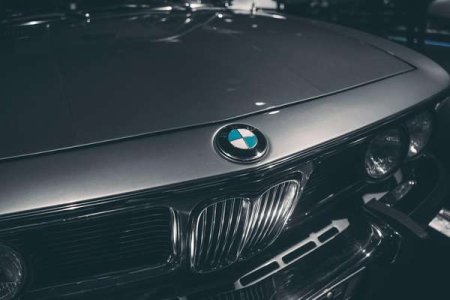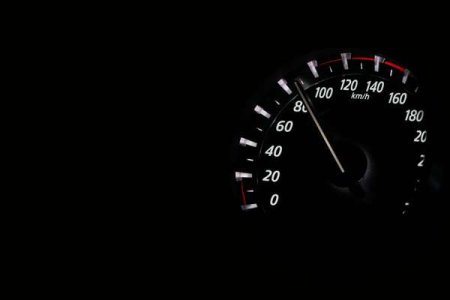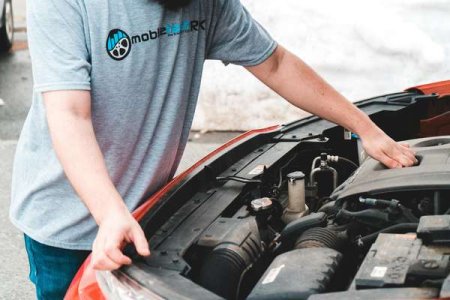Is Your Car On The List? Over 304,000 Vehicles Recalled! – Find Out Now!
By
Michelle E.
- Replies 0
Modern times call for modern changes in our cars, but safety continues to be a major concern for drivers and manufacturers alike. As vehicles become more sophisticated, so too does the need for vigilance in maintaining their integrity.
This is why recalls are issued—to ensure that any potential hazards are addressed before they lead to harm. It's not just about preserving the joy of the open road; it's about safeguarding the lives of you and your loved ones.
Recently, a significant number of vehicles from well-known manufacturers like Volkswagen, Mazda, Honda, BMW, and Porsche have been recalled, totaling over 304,000. If you own a car, find out if your vehicle is on the list!
Here's a quick breakdown of the latest recalls and what you need to know to take action.
Mazda's Multiple Recalls: A Range of Risks
Mazda has issued several recalls affecting a variety of models. The most alarming concern involves over 150,000 vehicles with potential issues ranging from software glitches to loss of drive power. The affected models include the 2024 CX-90 and the 2025 CX-70, both plug-in hybrid electric vehicles (PHEVs).
The improper inverter software could cause malfunction indicator lights to illuminate and, more critically, a loss of drive power while in electric vehicle (EV) mode. Additionally, Mazda has recalled other CX-70 and CX-90 models due to powertrain control module (PCM) and engine control modules (ECM) software issues that may also lead to a loss of drive power.
Recalled Mazda models (150,000):
Porsche's Wheel Detachment Woes
Porsche has identified a potential wheel detachment issue in several of its 2024 models, including the 911, 718 Cayman GT4 RS, and 718 Spyder RS. The risk of a wheel suddenly detaching poses a significant threat to vehicle control and increases the likelihood of a crash.
Porsche urges owners not to drive the recalled vehicles until they have been inspected and repaired by authorized dealers. Customers may also reach out to Porsche customer service to provide assistance with their concerns.
Recalled Porsche vehicles (1,851):

BMW's Structural Strength Shortcoming
BMW's recall of 3,312 vehicles, specifically the 2025 X1 xDrive28i and X1 M35i, is due to a manufacturing defect in the B-Pillar reinforcement plates. These plates may lack sufficient structural strength, compromising the vehicle's ability to protect passengers in the event of a crash.
Recalled BMW vehicles (3,312):
Honda's Motorcycle Recall: A Stalling Hazard
Honda has recalled 18,196 of its 2018-2021 GL1800 Goldwing motorcycles. The primary drive gear bolt on the crankshaft may break, potentially causing the engine to stall and the rear wheel to lock up, which could lead to a crash.
Recalled Honda motorcycles (18,196):
Volkswagen's recall of 114,478 vehicles, including various models of the Beetle, Beetle Convertible, Passat, and Passat Wagon, is due to a risk of the driver's side frontal airbag inflator exploding. This could send sharp metal fragments flying, posing a severe threat to occupants.
Recalled Volkswagen vehicles (114,478);
How to Check If Your Vehicle Is Recalled
If your vehicle isn't listed above, don't be too carefree yet. It's always wise to stay proactive by checking for new recalls that may affect your car. You can do this by visiting the National Highway Traffic Safety Administration (NHTSA) website and entering your vehicle identification number (VIN). This simple step could be the difference between a routine drive and an avoidable disaster.
Taking Action: What to Do Next
If you find that your vehicle is subject to a recall, the next steps are clear:
1. Contact the manufacturer using the customer service numbers provided. They will guide you through the process and inform you about the remedy, which is typically free of charge.
2. Schedule an appointment with an authorized dealer to have the necessary repairs or replacements made.
3. Follow any specific instructions from the manufacturer, such as not driving the vehicle if advised.
Your vehicle is more than just a means of transportation—it's a vessel for your independence and a part of your daily life. That's why responding to recalls promptly is not just about compliance; it's about continuing to enjoy the freedom of the road safely.

Remember, staying informed and taking action on vehicle recalls is a critical aspect of responsible car ownership. By doing so, you're not only protecting yourself but also contributing to the safety of all who share the road with you. Let's keep our wheels turning and our journeys joyful, with the peace of mind that comes from knowing our vehicles are as secure as they can be.
Have you ever been affected by a vehicle recall? What was your experience like? Do you have any tips for fellow readers on how to handle recalls efficiently? Can you share any other tips for road safety? Share your stories and advice in the comments below. Let's use our collective wisdom to keep our roads safe for everyone.
This is why recalls are issued—to ensure that any potential hazards are addressed before they lead to harm. It's not just about preserving the joy of the open road; it's about safeguarding the lives of you and your loved ones.
Recently, a significant number of vehicles from well-known manufacturers like Volkswagen, Mazda, Honda, BMW, and Porsche have been recalled, totaling over 304,000. If you own a car, find out if your vehicle is on the list!
Here's a quick breakdown of the latest recalls and what you need to know to take action.
Mazda's Multiple Recalls: A Range of Risks
Mazda has issued several recalls affecting a variety of models. The most alarming concern involves over 150,000 vehicles with potential issues ranging from software glitches to loss of drive power. The affected models include the 2024 CX-90 and the 2025 CX-70, both plug-in hybrid electric vehicles (PHEVs).
The improper inverter software could cause malfunction indicator lights to illuminate and, more critically, a loss of drive power while in electric vehicle (EV) mode. Additionally, Mazda has recalled other CX-70 and CX-90 models due to powertrain control module (PCM) and engine control modules (ECM) software issues that may also lead to a loss of drive power.
Recalled Mazda models (150,000):
- CX-70
- CX-90
Porsche's Wheel Detachment Woes
Porsche has identified a potential wheel detachment issue in several of its 2024 models, including the 911, 718 Cayman GT4 RS, and 718 Spyder RS. The risk of a wheel suddenly detaching poses a significant threat to vehicle control and increases the likelihood of a crash.
Porsche urges owners not to drive the recalled vehicles until they have been inspected and repaired by authorized dealers. Customers may also reach out to Porsche customer service to provide assistance with their concerns.
Recalled Porsche vehicles (1,851):
- 2024 911
- 2024 718 Cayman GT4 RS
- 2024 718 Spyder RS

Even the BMW, a beloved vehicle brand, is not safe from the requested recalls. Image source: Pexels.
BMW's Structural Strength Shortcoming
BMW's recall of 3,312 vehicles, specifically the 2025 X1 xDrive28i and X1 M35i, is due to a manufacturing defect in the B-Pillar reinforcement plates. These plates may lack sufficient structural strength, compromising the vehicle's ability to protect passengers in the event of a crash.
Recalled BMW vehicles (3,312):
- 2025 X1 xDrive28i
- 2025 X1 M35i
Honda's Motorcycle Recall: A Stalling Hazard
Honda has recalled 18,196 of its 2018-2021 GL1800 Goldwing motorcycles. The primary drive gear bolt on the crankshaft may break, potentially causing the engine to stall and the rear wheel to lock up, which could lead to a crash.
Recalled Honda motorcycles (18,196):
- 2018-2021 GL1800 Goldwing
Volkswagen's recall of 114,478 vehicles, including various models of the Beetle, Beetle Convertible, Passat, and Passat Wagon, is due to a risk of the driver's side frontal airbag inflator exploding. This could send sharp metal fragments flying, posing a severe threat to occupants.
Recalled Volkswagen vehicles (114,478);
- 2017-2019 Beetle
- 2017-2019 Beetle Convertible
- 2012-2014 Passat
- 2017 Passat Wagon
- 2006-2007 Passat Sedan
How to Check If Your Vehicle Is Recalled
If your vehicle isn't listed above, don't be too carefree yet. It's always wise to stay proactive by checking for new recalls that may affect your car. You can do this by visiting the National Highway Traffic Safety Administration (NHTSA) website and entering your vehicle identification number (VIN). This simple step could be the difference between a routine drive and an avoidable disaster.
Taking Action: What to Do Next
If you find that your vehicle is subject to a recall, the next steps are clear:
1. Contact the manufacturer using the customer service numbers provided. They will guide you through the process and inform you about the remedy, which is typically free of charge.
2. Schedule an appointment with an authorized dealer to have the necessary repairs or replacements made.
3. Follow any specific instructions from the manufacturer, such as not driving the vehicle if advised.
Your vehicle is more than just a means of transportation—it's a vessel for your independence and a part of your daily life. That's why responding to recalls promptly is not just about compliance; it's about continuing to enjoy the freedom of the road safely.
Key Takeaways
- Several car manufacturers including Volkswagen, Mazda, Honda, BMW, and Porsche have issued recalls affecting over 304,000 vehicles due to various safety concerns.
- The recalls address serious issues that could increase the risk of a crash, such as wheel detachment in Porsches, insufficient structural strength in BMWs, engine stalls in Hondas, and potential drive power loss in Mazdas.
- Vehicle owners are advised to check if their car is affected by searching the National Highway Traffic Safety Administration (NHTSA) database using their vehicle identification number (VIN).
- Remedies for the recalled issues are being provided free of charge by dealers, and recall notification letters are expected to be sent to vehicle owners with instructions on how to proceed.
Remember, staying informed and taking action on vehicle recalls is a critical aspect of responsible car ownership. By doing so, you're not only protecting yourself but also contributing to the safety of all who share the road with you. Let's keep our wheels turning and our journeys joyful, with the peace of mind that comes from knowing our vehicles are as secure as they can be.
Have you ever been affected by a vehicle recall? What was your experience like? Do you have any tips for fellow readers on how to handle recalls efficiently? Can you share any other tips for road safety? Share your stories and advice in the comments below. Let's use our collective wisdom to keep our roads safe for everyone.
Last edited:









